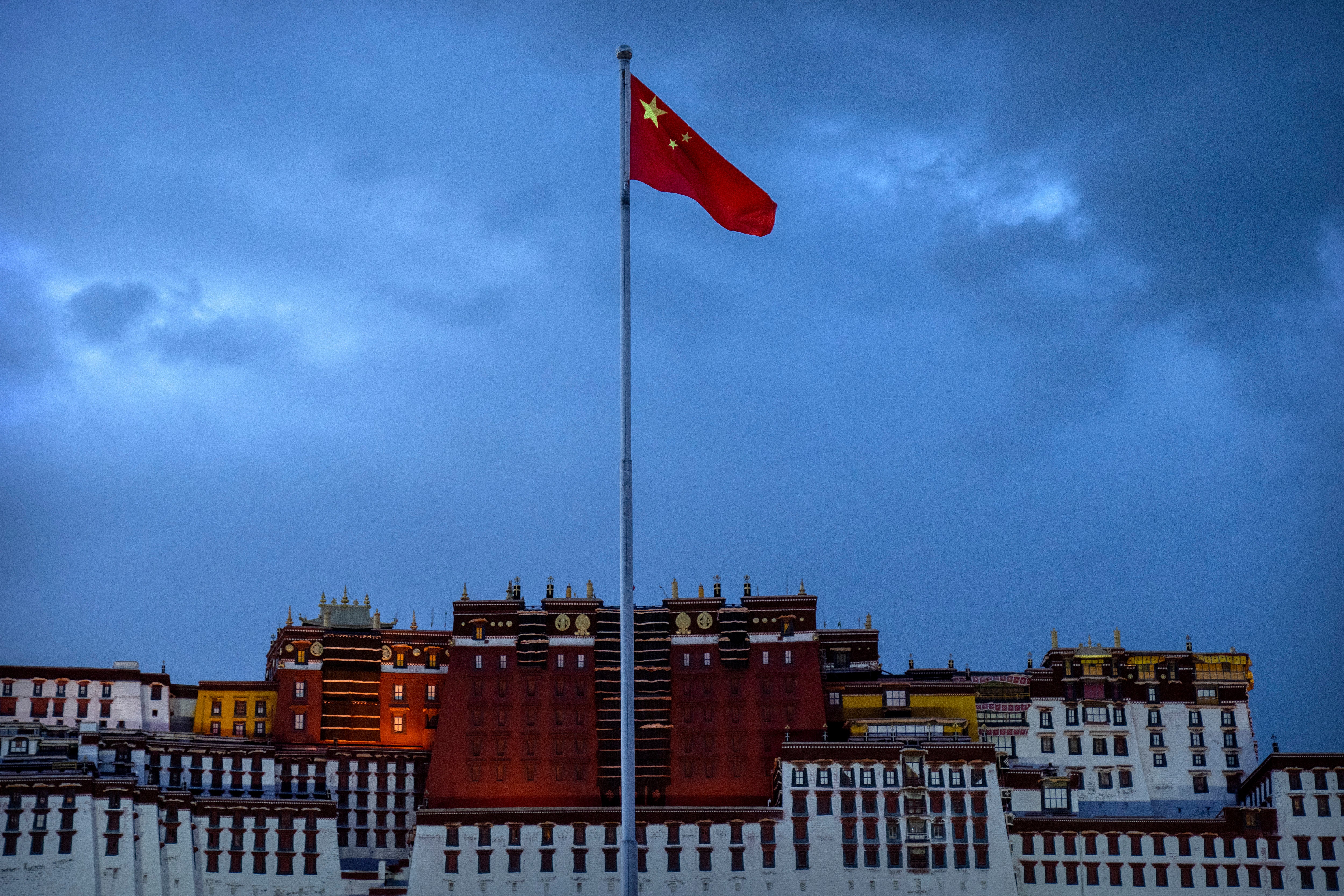Beijing has hit back with reciprocal visa restrictions on US personnel for acting “egregiously” on Tibet-related issues after it denounced American travel curbs on Chinese officials.
The tit-for-tat move came two weeks after the US imposed visa restrictions on Chinese officials involved in enforcing travel restrictions on US diplomats, journalists and other international observers seeking to visit Tibet.
Western governments have accused China of restricting diplomats and foreign journalists from travelling to the remote Himalayan region referred to as Xizang by Beijing.
Foreign tourists are allowed to visit Tibet so long as they travel in groups and secure a permit in advance. Diplomats and foreign journalists must obtain approval of Tibet’s local authorities to visit.
Chinese foreign ministry spokesperson Lin Jian said issues related to Tibet were China’s “internal affairs”.
“The US’s arbitrary visa restrictions on Chinese officials under the pretext of Xizang-related issues violate international law and basic norms governing international relations,” she said.
“China decided to impose visa restrictions on US personnel who have acted egregiously on the Xizang-related issues.”
She claimed that Tibet was open, and Beijing welcomed foreigners to visit and do business in the region.
“At the same time, we oppose any country or individual using human rights, religion and culture as a false pretext to meddle in Xizang affairs,” she said. “We oppose interference and sabotage by people with ill motives who would use visits to Xizang as an opportunity to engage in such activities.”
The visa restrictions came after US president Donald Trump singled out China for steep import levies, imposing an effective tariff rate of 145 per cent on the Asian giant, while reducing it to 10 per cent for almost every other country.
Beijing responded by raising import duties on American goods to 125 per cent.

On 31 March, US secretary of state Marco Rubio said the US would impose visa restrictions on Chinese officials “determined to be substantially involved in the formulation or execution of policies related to access for foreigners” to Tibet.
He said the move was in line with the Reciprocal Access to Tibet Act of 2018 under which Chinese officials could be denied American visas if they were found denying access to US officials, journalists, observers, and tourists to the area.
Mr Rubio claimed Beijing had long “refused to afford US diplomats, journalists and other international observers access to the Tibet autonomous region and other Tibetan areas”, while Chinese diplomats and reporters enjoyed “broad access in the United States”.
“This lack of reciprocity is unacceptable and will not be tolerated,” he said and demanded “unrestricted access” for American diplomats to Tibet.
The Chinese foreign ministry responded that Beijing had never issued regulations to restrict entry into Tibet.
China seized control of Tibet in 1950 after the communists won the Chinese civil war. It described the takeover as “peaceful liberation” from feudalistic serfdom.
The Dalai Lama, the spiritual and temporal leader of Tibetan Buddhists, fled following a failed uprising against Beijing’s rule in 1959. He has lived in exile in India ever since.



